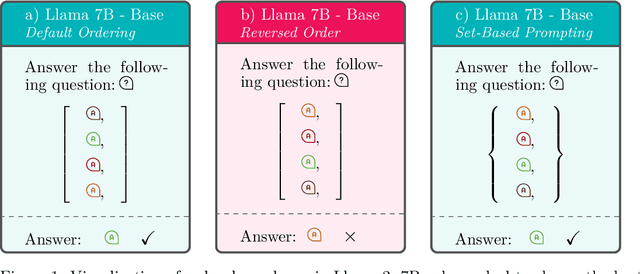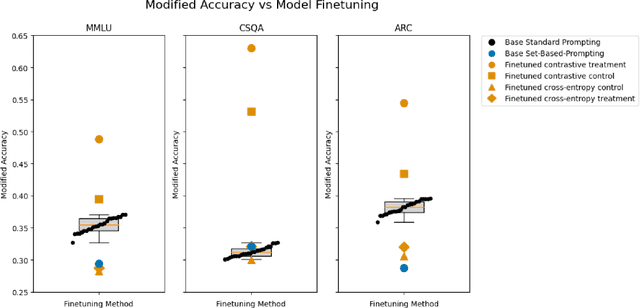Order Independence With Finetuning
Paper and Code
Mar 30, 2025



Large language models (LLMs) demonstrate remarkable performance on many NLP tasks, yet often exhibit order dependence: simply reordering semantically identical tokens (e.g., answer choices in multiple-choice questions) can lead to inconsistent predictions. Recent work proposes Set-Based Prompting (SBP) as a way to remove order information from designated token subsets, thereby mitigating positional biases. However, applying SBP on base models induces an out-of-distribution input format, which can degrade in-distribution performance. We introduce a fine-tuning strategy that integrates SBP into the training process, "pulling" these set-formatted prompts closer to the model's training manifold. We show that SBP can be incorporated into a model via fine-tuning. Our experiments on in-distribution (MMLU) and out-of-distribution (CSQA, ARC Challenge) multiple-choice tasks show that SBP fine-tuning significantly improves accuracy and robustness to answer-order permutations, all while preserving broader language modeling capabilities. We discuss the broader implications of order-invariant modeling and outline future directions for building fairer, more consistent LLMs.
 Add to Chrome
Add to Chrome Add to Firefox
Add to Firefox Add to Edge
Add to Edge